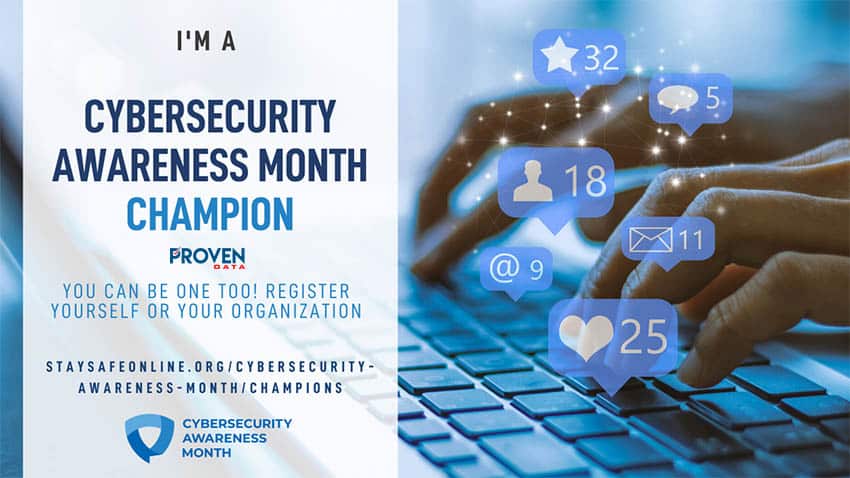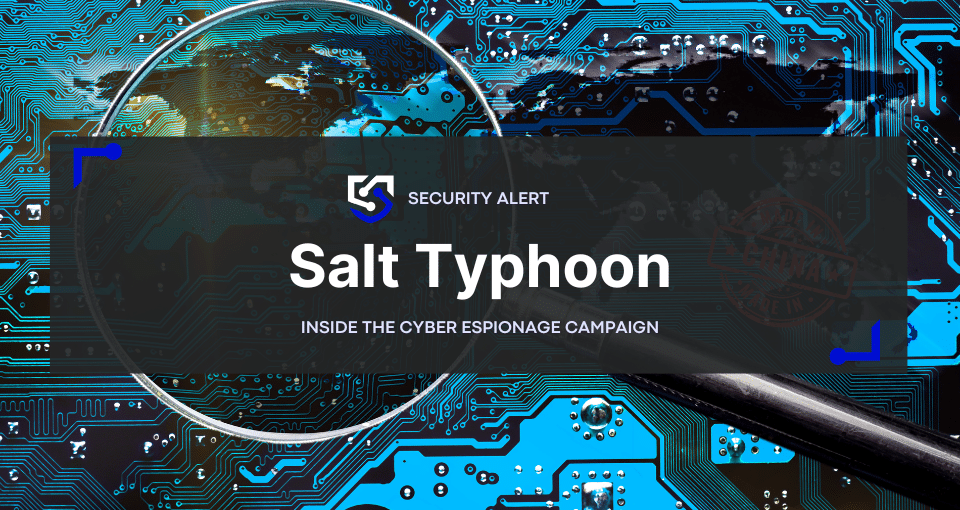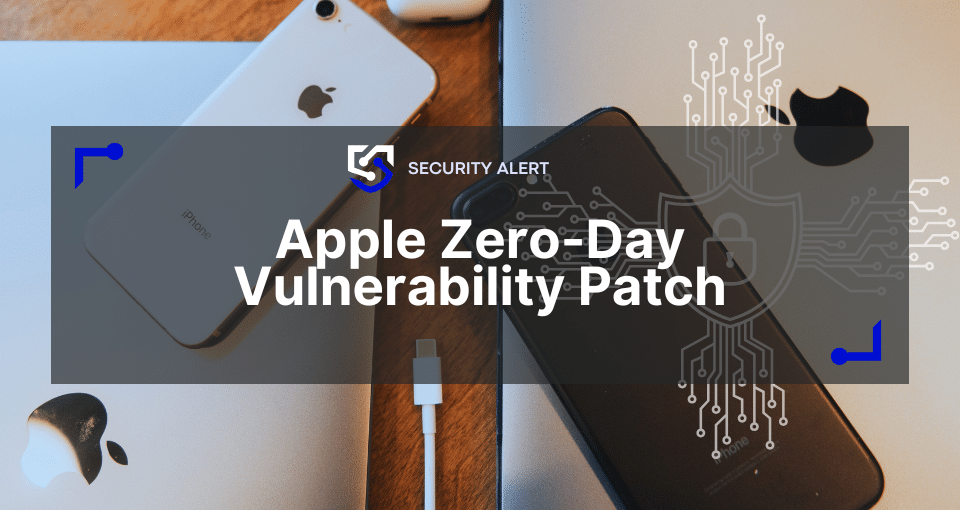Outsourced cyber security is an externally managed service employing certified cyber security professionals.
Pros
- 24/7 threat detection and response
- Cheaper and more effective than training internal employees
- Expertise and resources to combat evolving cyber threats
Cons
- Workload spread between clients
- Lack of organization-specific knowledge
- May not recommend the right products/services for your organizational needs (upsell on protections)
A robust cyber security foundation is fundamental to business success.
You’ve come to this page because you want to learn more about the option of outsourcing cyber security.
We understand that deciding how to implement and maintain a cyber security program can be challenging. After researching your options, you might be asking this question: is outsourcing cyber security a good fit for my business?
At Proven Data, we are passionate about helping you find the best cyber security resources for your organization. As a ransomware recovery service, we’ve seen firsthand the damage that occurs when organizations do not prioritize cyber security.

Having assisted thousands of clients, our cyber security specialists understand when outsourcing may or may not make sense for your organization. Armed with this first-hand knowledge, we help you make an informed decision.
This article provides a thorough breakdown of the pros and cons of outsourcing cyber security to give you a comprehensive picture of outsourcing as an option to protect your business.
We recognize that your organization is unique and cyber security protection looks different for everyone.
Admittedly, we’d be thrilled to help you protect your business with the cyber security services we do offer, but today we’d like to take a step back and examine the upsides and downsides of outsourced services to help you choose the best option for you (even if that means you don’t choose us).
It may seem counterintuitive to talk about the downsides of a service we provide, but our goal is for you to feel prepared to pick the best cyber security solution for your organization.
We are just that passionate about helping people get cyber serious (we even produced a documentary about it).
We understand that outsourcing cyber security isn’t the best fit for every organization, that’s why we’ve created a list of pros and cons to let you assess if it is the right choice for you.
By the end of this article, you will:
- Know what outsourcing cyber security looks like
- Be aware of the pros and cons of outsourcing
- Be able to make an informed choice on what cyber security solution is best for your organization
What is cyber security and why is it important?
Before getting into the nitty-gritty outsourcing cyber security, let’s recap why you need cyber security protection in the first place. In one sentence, cyber security is the practice of protecting your organization from cyber threats. Sounds simple, right? Not so fast.
Cyber security protection goes beyond implementing a single practice, procedure or product.
Effective cyber security requires a layered approach that is continuously evolving and updating to stay ahead of increasingly damaging and costly cyber threats.
After experiencing a data breach, 37% of surveyed small businesses reported a financial loss, 25% filed for bankruptcy and 10% went out of business according to a study conducted by the National Cyber Security Alliance (NCSA).
With cyber security, the bottom line is this: the impact of inaction is greater than the cost of implementing proactive protection.
Consequences of a data breach on small businesses
0%
Reported Financial Loss
0%
Filed for Bankruptcy
0%
Went out of business
NCSA Small Business Cybercriminal Target Survey
Is cyber security something I can do within my IT department?
Information technology (IT) and cyber security roles may be related, but they are not twins. To reduce costs, organizations sometimes designate cyber security responsibilities to existing IT staff.
Due to the expanding cyber threat landscape, the functions of in-house IT and cyber security specialists are no longer synonymous. If an IT worker inherits security issues above their skillset and pay grade, this can lead to hazardous security protection gaps.
A traditional IT professional acting as a security manager cannot match the specialized knowledge, technology and resources available through a dedicated cyber security professional.

Consider this analogy: Imagine your organization as a car and a cyber security company as a mechanic. Now, if your car needs to be washed, you probably feel confident enough to do that yourself. No big deal. But if your car needs a new transmission, unless you’re a mechanic, chances are you’re not rolling up your sleeves and installing it on your own next weekend.
Training IT employees to be cyber aware can act as a first step to protect your network like a car wash is the first step of car maintenance. But a car wash cannot keep your car running like a transmission and traditional IT workers do not have the advanced skills needed to provide comprehensive cyber protection for the very engine of your organization: your data.
The specialized skills and tools that cyber security professionals offer is why some organizations choose to leave cyber security protection to the pros, allowing their employees to focus on their specialized roles within the organization.
Things to know whether you choose to insource or outsource cyber security
Whether you choose to insource or outsource cyber security, we’ve outlined general protocols to keep in mind when choosing the best cyber security solution for your organization.
What type of cyber security do you need?
The first step is understanding the specific vulnerabilities in your organization that put you at risk for a cyber attack. A cyber security service can offer a free security consultation to help you understand what your organization needs most.
Conducting a security architecture, risk, or network vulnerability assessment can help you determine where there are gaps in your cyber security. Learn about the types and costs of cyber security assessments available.
What cyber security regulations apply to your organization?
Regardless of whether you are considering outsourcing or internally implementing cyber security, you need to find out which security compliance regulations apply to your organization. Cyber security and data regulations vary depending on the type of organization, the organization’s location, and the kind of data on the organization’s network. You need to ensure the security solution you choose keeps you up to date with your respective cyber security standards.
Do you need a specific cyber security budget?
Adding another item to your organization’s budget can be stressful. However, assessing your need for cyber security protection using a cost/benefit analysis confirms that allocating a budget for cyber security is vital for your organization’s success.
According to the FBI’s Internet Crime Report, cyber crime in 2019 cost U.S. businesses over $3.5 billion, with the average cost of a data breach is 3.92 million according to IBM’s 2019 Cost of a Data Breach Report. In contrast, the average cyber security budget ranges from 5% to 20% of an organization’s IT budget. Regardless of if you choose to outsource or internally implement a cyber security framework, you can’t afford to cut corners and risk the costly consequences of a cyber attack.
How do you ensure the level of service you expect?
Creating an enforceable, realistic and customized service level agreement (SLA) between your organization and your chosen cyber security provider is critical.
24/7 monitoring and immediate incident response are crucial aspects of a strong cyber security program. You need to know that the cyber security professional you work with will adhere to your organization’s monitoring and incident response expectations.
Now that you understand some of the reasons to invest in cyber security and the general protocols to ensure the best protection, let’s break down what outsourcing looks like and the pros and cons you need to assess when choosing the right cyber security solution for you.
What is outsourced cyber security?
Outsourced cyber security is an externally managed service that employs certified cyber security professionals to handle your organization’s cyber protection needs.
Having an incident response plan that includes an outsourced vendor can give you quick access to the resources necessary to efficiently recover from a cyber incident.
Outsourcing cyber security ensures your organization is protected by professionals who specialize in protecting and defending your data. Some cyber security vendors may also provide additional services to help you resolve and recover from a cyber incident all in one stop.
Now, let’s dive into the pros and cons of outsourced cyber security to see if it is a good fit for your organization.
Pros of outsourcing cyber security
An effective cyber security solution for your organization should:
- Approach your security with a sense of urgency
- Be affordable depending on your business type
- Have specialized skills and resources to address the expanding needs in cyber security
Below we outline the pros of using outsourced cyber security to keep your organization secure.
Available for 24/7 service
One of the primary benefits of outsourcing cyber security is around-the-clock monitoring and response. Cyber attacks frequently occur outside of business hours. According to a FireEye report, 76% of ransomware attacks in the enterprise sector occurred outside of working hours.
Rapid incident response is crucial during a cyber attack. It only takes approximately three seconds for a cyber criminal to launch ransomware. With threats moving at this speed, your organization cannot afford to waste time responding. Having a cyber security service on call around the clock can ensure your organization is able to respond and remediate cyber threats quickly and efficiently.
If you want to retain a hands-on approach with your cyber security, a solution set up by an outsourced cyber security provider can be supplemented with applications and monitoring devices that notify internal employees during business hours. These solutions can allow your organization to resolve incidents internally with the peace of mind that you have the option to transfer the task to an external service if extra expertise is required.
Cost efficient
An outsourced cyber security service will have common cyber security costs and time estimates outlined to ensure you understand which services are essential and cost effective for your organization.
Hiring an outsourced specialist eliminates payroll and employee benefit package costs that come with internally managing cyber security. Additionally, if your organization needs a one-time service like a security architecture review or program development, hiring an external cyber security specialist can get your organization up to speed without going through the cost of training and certifying an internal employee.
Specific expertise in cyber security
Outsourcing your organization’s cyber protection to a dedicated cyber security service provides you with access to certified experts with proprietary threat intelligence and understanding of the current threat landscape. With this knowledge, cyber security experts are able to provide customized cyber protection for a vast array of organization sizes and types.
Staying ahead of cyber threats requires constantly staying on top of evolving threats, utilizing tried and tested technology and threat intelligence. Cyber security specialists are continually updating industry certifications and continuing education on new technologies and threats.
Cons of outsourcing cyber security
We recognize that outsourcing cyber security is not without its downsides. We’ve outlined the cons of outsourcing cyber security to help you decide if it is a viable option based on your organization’s security needs.
Workload is spread between clients
An external cyber security provider often serves more than one client at once. Your request may not be attended to with the same immediacy as it would be by an internal team since your company is not their sole responsibility.
This is where the importance of a service level agreement (SLA) comes in. A carefully crafted SLA can eliminate the downside of slower response times by providing clear service expectations.
Organizations often choose to outsource cyber security for the benefit of 24/7 service, but it is critical to establish your expected incident response time if you have signed up for a 24/7 monitoring period. Outlining your organization’s needs and agreeing upon service expectations allows an external cyber security company to provide you with the attention that your organization needs in the time frame you need it.
Lack specific knowledge of your organization
An outsourced cyber security specialist has one priority: keeping data secure. They do not have extensive knowledge of your particular organization like an internal employee would. Unless notified by you, outsourced cyber security professionals will not be aware of day-to-day changes in your organization, such as when new employees are onboarded or new network configurations that take place.
Understanding the ins and outs of your specific organization is especially important for specialized industries that require specific data protection to be compliant with their respective regulations.
May try to upsell you on products/services that don’t fit your needs
Cyber security services often provide protection subscriptions that are constructed to fit the needs of their general client base. These standard packages are not custom-tailored for your organization and can result in over-spending of your cyber security budget. Some cyber security vendors will attempt to upsell you on more security solutions than your organization requires.
When choosing a cyber security company, it is important to ask if they can custom tailor their cyber security offerings to meet your organization’s specific security and budget needs.
How do you decide if outsourcing cyber security is the best fit?
Now that you understand the pros and cons of outsourcing cyber security, the next step is choosing if it is the right fit for your organization.
We’ve provided the information, but the decision is yours to make.
If you are a part of a niche industry, your technology might be highly specialized and your cyber security needs require in-depth knowledge of day-to-day activities. In this case, having an internal employee in charge of securing your network may be the best choice if your budget permits.
However, if your organization has limited internal resources and lacks the budget for a dedicated internal cyber expert trusting your cyber protection to outsourced professionals can give you the peace of mind you need. Knowing you have security specialists on call 24/7 to protect your organization can allow you to focus on meeting and exceeding your organization’s goals.
Having an internal IT manager or managed service provider (MSP) who has inherited the duties of cyber security puts your organization at risk.
At Proven Data, we frequently assist clients with optimizing internal cyber security practices and protocols as well as providing outsourced cyber security services. Our cyber security professionals can provide your organization with access to specialized skillsets across a variety of service areas, including data recovery, ransomware recovery and digital forensics.

If you do decide to outsource your cyber security, we’ve provided the top 5 traits to look for in a cyber security company to guide you in the next step of your decision making process.
We understand that there is no one-size-fits-all option in cyber security, and our commitment to helping your business get cyber serious goes beyond products we offer.
We’ve joined forces with the National Cyber Security Alliance as a champion for National Cyber Security Awareness Month to educate others about the importance of cyber security.
Want to talk to a cyber security specialist about your organization’s security concerns?
Request a cyber security consultation
Cyber Security FAQs
How do I choose a cyber security company?
Here are the top 5 traits you should look for in a cyber security company:
- Qualifications
- Up to date threat intelligence
- Accessibility
- Transparency
- Plan of action
How much does cyber security cost?
The average cyber security budget ranges from 5% to 20% of an organization’s IT budget. Cyber security cost factors include:
- Size of company
- Type of data
- Products and services
- Self-install vs. professional install







